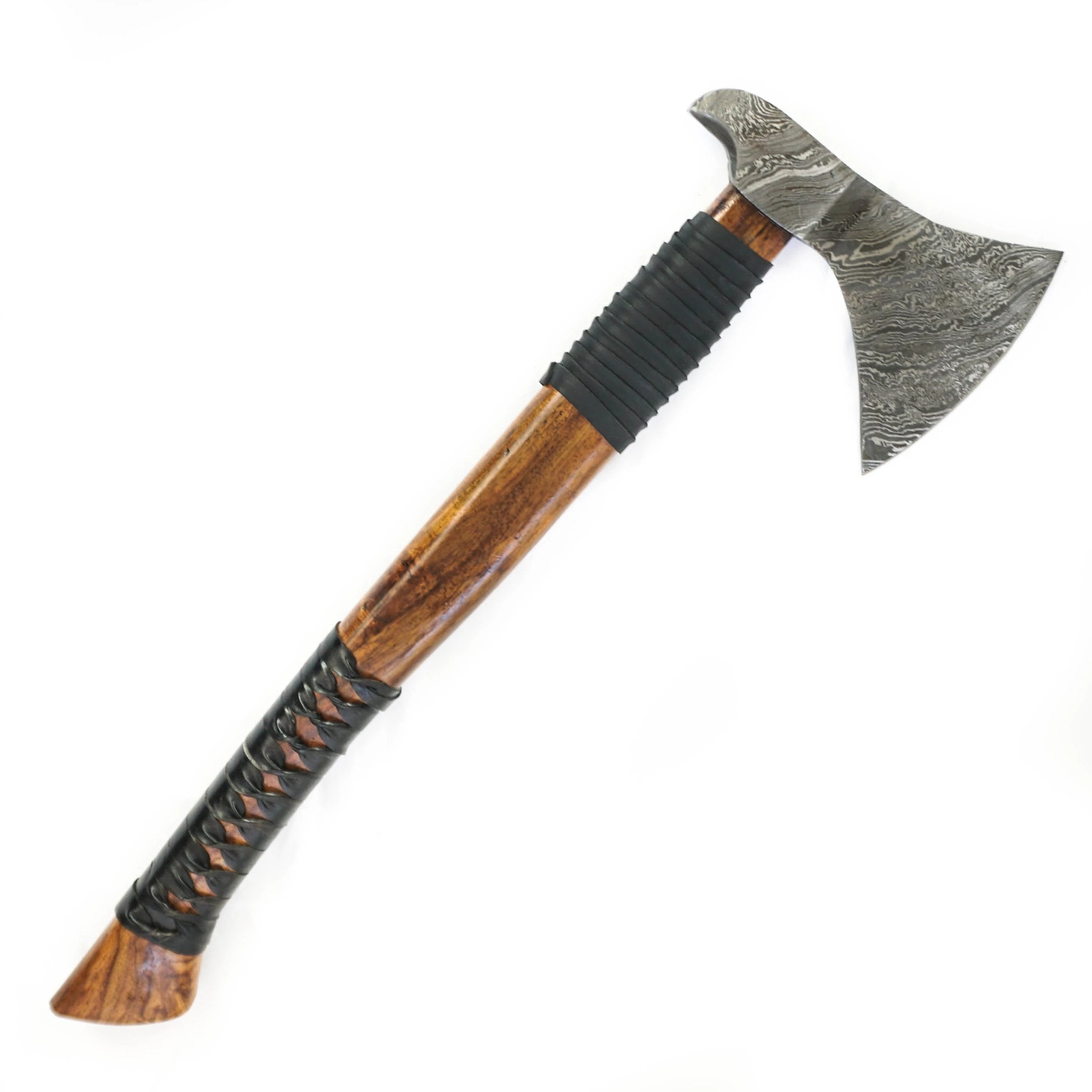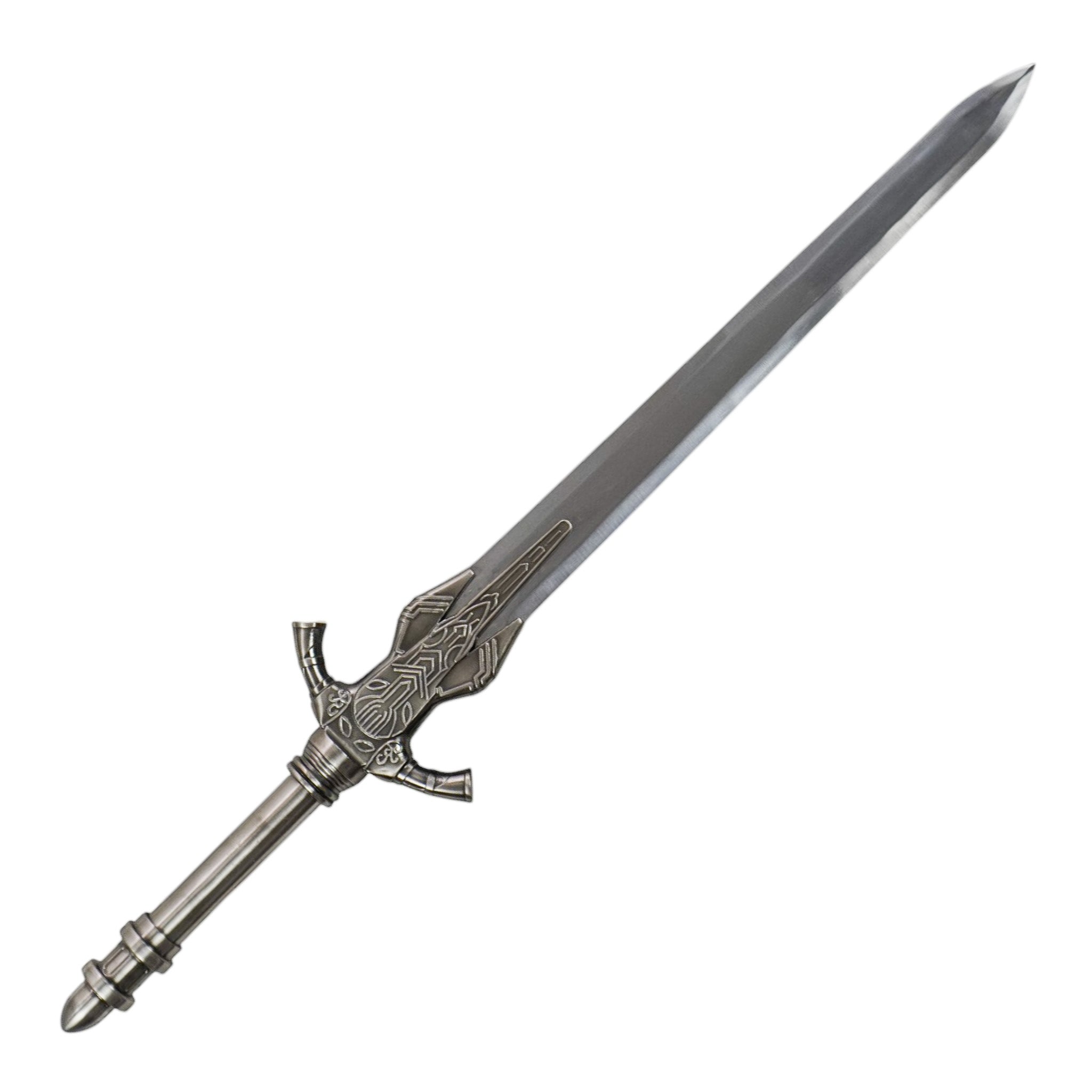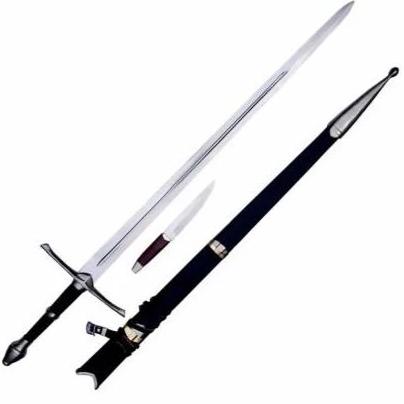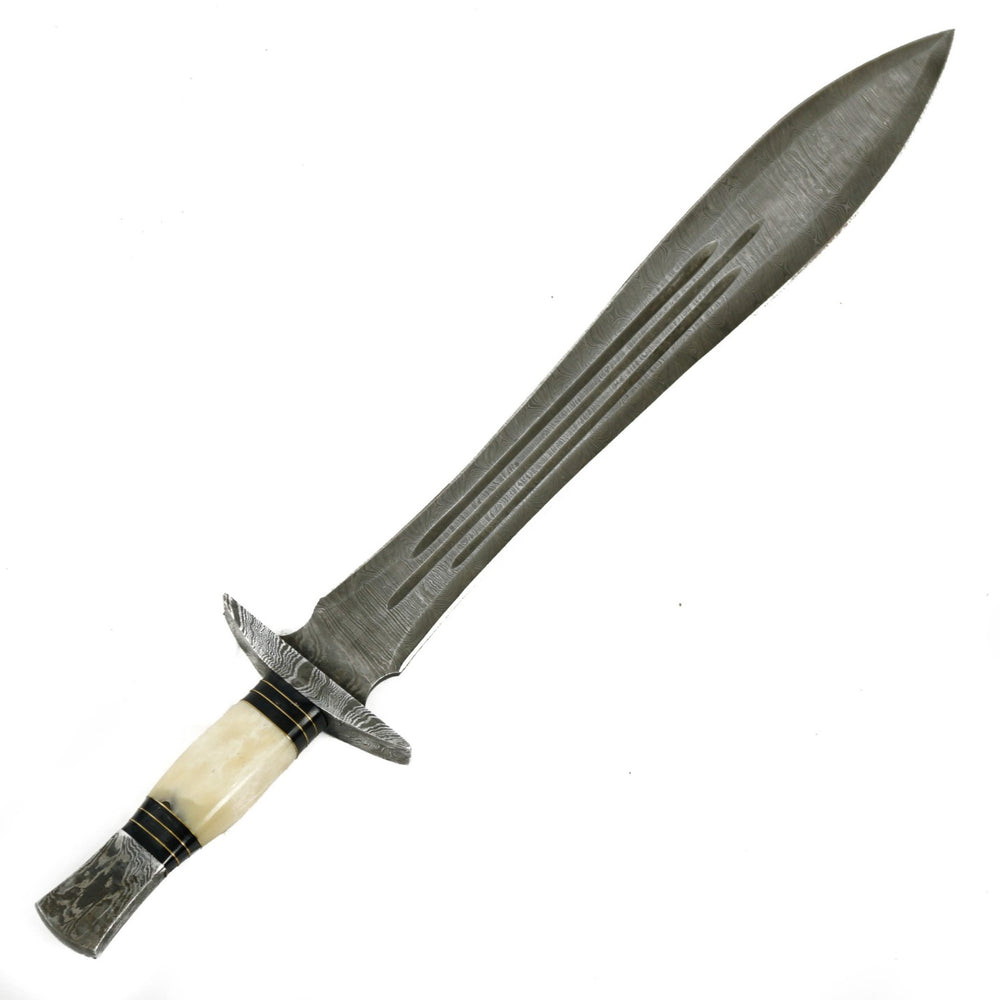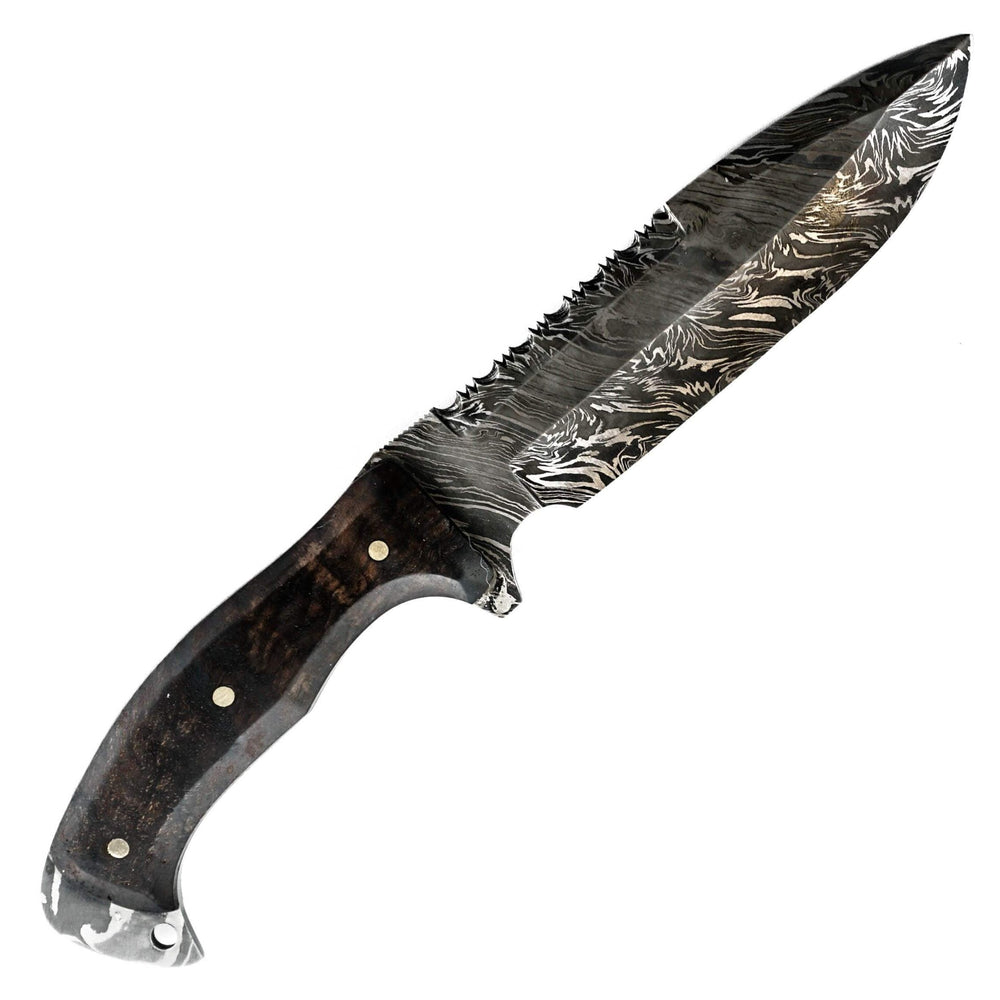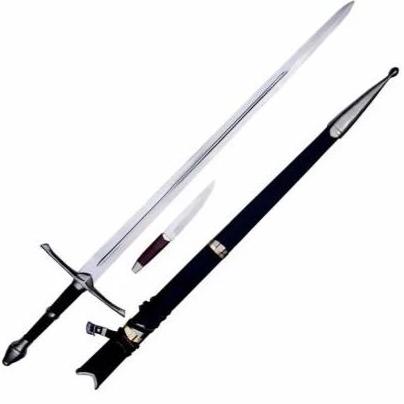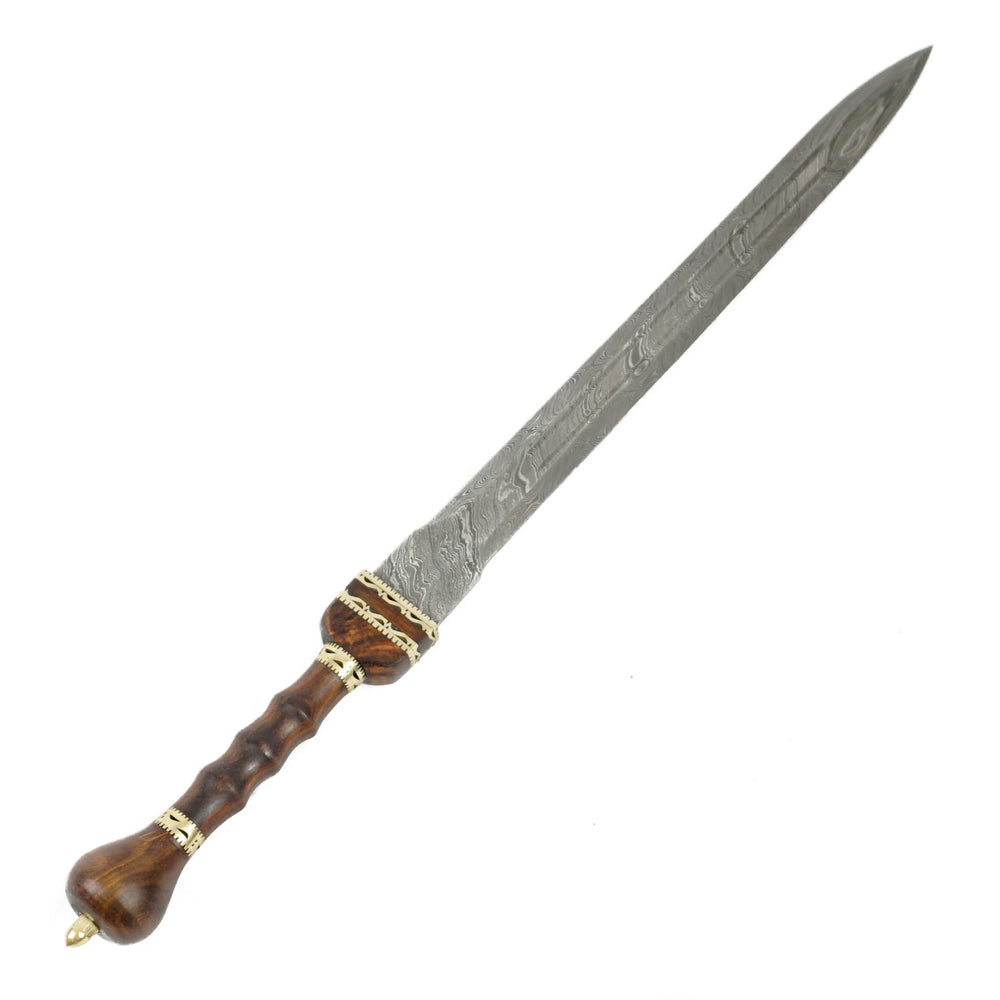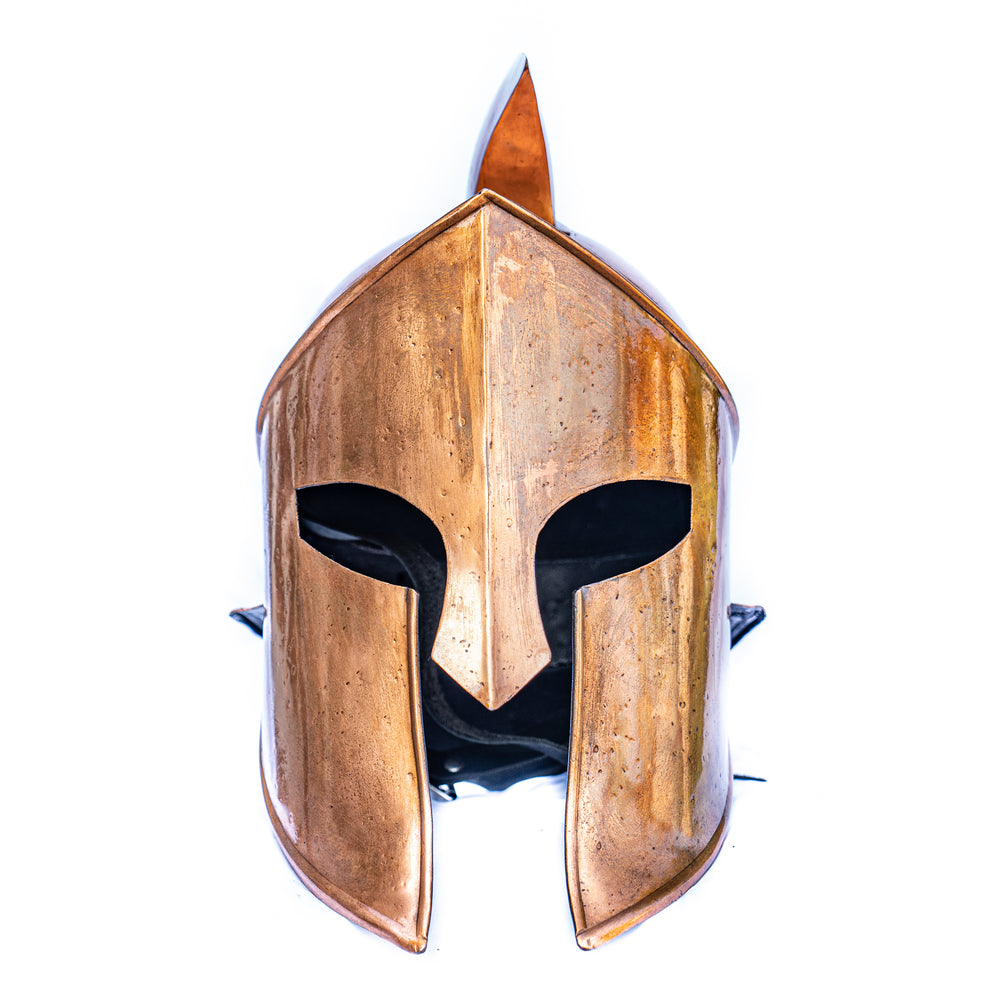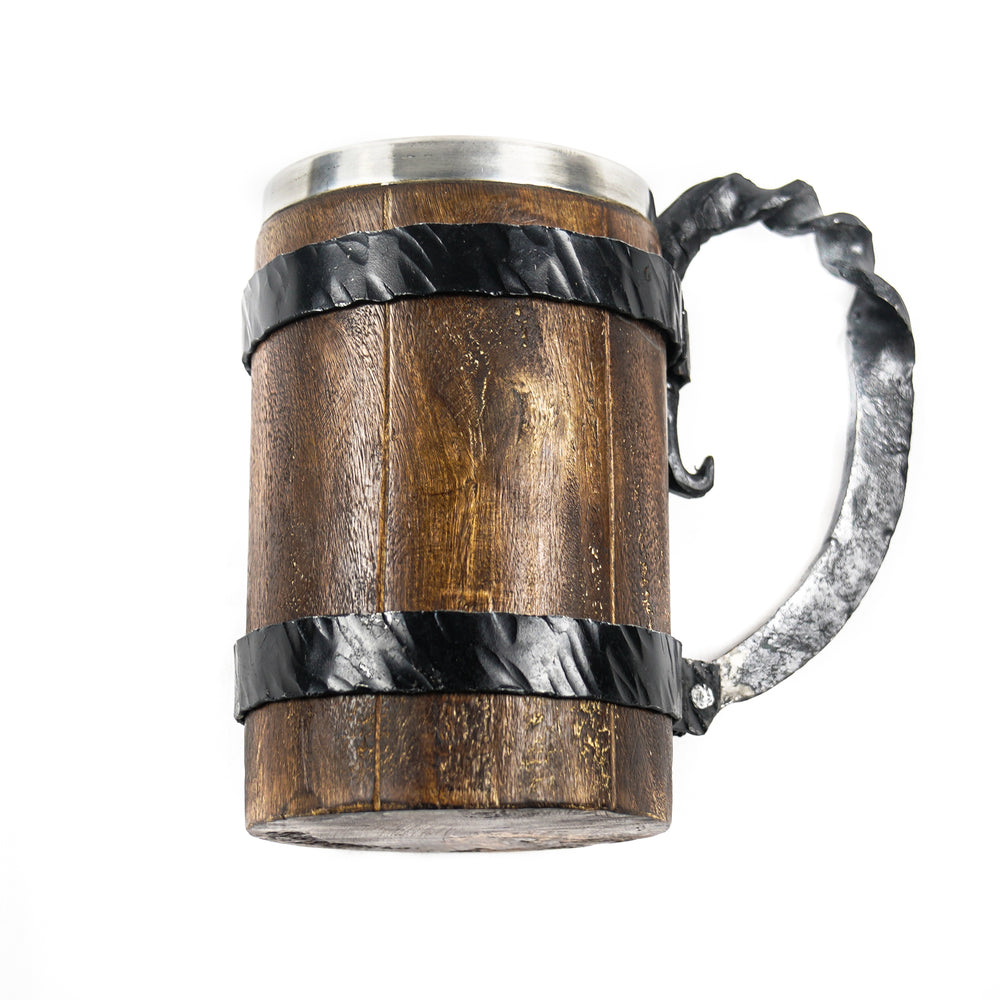The Enigmatic Legacy: Unveiling the Quality of Damascus Steel Blades of Battling Blades
Introduction:
In the world of sword craftsmanship there are materials as revered as Damascus steel. Known for its patterns, exceptional sharpness and enduring strength this type of steel has fascinated warriors, artists and historians for generations. The allure of Damascus steel blades remains strong, in the realm of weaponry symbolizing a tradition of skill and creativity. This article delves into the craftsmanship, quality and timeless appeal of Damascus steel blades in the realm of combat weapons.
The Legacy of Damascus Steel:
The history of Damascus steel is steeped in mystery and legend enhancing its charm. Historically crafted in the Middle East in Damascus city from which it derives its name the precise methods used to make this steel were closely kept secrets passed down among skilled craftsmen over centuries. What made Damascus steel stand out was its blend of iron and carbon combined with the intricate patterns that emerged during its creation process.
Damascus steel was created through a fusion of iron and carbon sourced from regions renowned for their superior ores. The techniques employed by artisans who crafted Damascus steel resulted in a material that boasted strength, flexibility and sharpness.
The beautiful rippling designs found on Damascus steel blades were achieved through a method of layering and folding the metal, a process known as pattern welding.
Quality and Performance:
The superior quality of Damascus steel blades is a tribute to the expertise and artistry of the artisans who craft them. Unlike steel blends that are often uniform in composition Damascus steel showcases a diverse structure due to the stacking of various metal blends during forging. This intricate makeup results in a blade that's both sturdy and flexible capable of enduring repeated stress and impact without breaking.
A sought after feature of Damascus steel blades is their exceptional sharpness and ability to maintain an edge. The grained structure of Damascus steel enables the creation of an incredibly sharp edge that can effortlessly cut through targets. Furthermore the unique patterns on Damascus steel blades not showcase their quality but also reflect the meticulous craftsmanship involved in their making.
Aside from their sharpness Damascus steel blades are also admired for their longevity and resistance to corrosion. The layered composition forms a shield, against rust and discoloration ensuring that these blades retain their pristine condition even after years of use.
The ability of Damascus steel blades to resist corrosion makes them well suited for conditions, where exposure to moisture and humidity could cause damage to other materials.
Craftsmanship and Artistry:
The essence of each Damascus steel blade embodies the craftsmanship and artistry of the sword maker. The process of crafting these blades is not a technical task but an artistic pursuit that demands expertise, patience and meticulous attention to detail.
It all starts with selecting raw materials – iron and carbon – sourced from trusted suppliers known for their high quality ores. These metals undergo heating in a forge, where they are hammered and folded repeatedly to form layers. Each fold serves to refine the grain structure of the steel while introducing patterns and textures on the blades surface.
As the layers fuse together through forging the sword maker meticulously. Refines the blade focusing on its balance, shape and visual appeal. Once the desired form is achieved the blade undergoes hardening and tempering processes to enhance its properties achieving a delicate balance, between hardness and flexibility.
To finish off the blade is meticulously polished to reveal a dazzling mirror sheen that showcases the intricate patterns hidden within.
This process of refining is quite a task often demanding many hours of careful manual labor to reveal the true beauty of Damascus steel.
Cultural Significance and Symbolism:
Besides their use Damascus steel swords hold significant cultural meaning and symbolism. In societies the sword represents more than just a tool. It stands for honor, respect and authority. The craftsmanship and history behind Damascus steel swords embody these values in a way.
Throughout the ages Damascus steel swords have been linked with nobility, royalty and skilled warriors. They were treasured possessions passed down through generations as symbols of power and lineage. Today these blades are frequently seen in ceremonial settings like weddings or graduations where they signify strength, resilience and tradition.
In media and entertainment culture Damascus steel blades continue to captivate global audiences. From fantasy tales, to historical narratives these blades serve as iconic symbols of bravery and daring adventures. They invoke feelings of nostalgia for an era when craftsmanship and integrity were regarded qualities that inspire people to dream of noble quests and heroic acts.
Conclusion:
In the world of sword making Damascus steel swords are revered as enduring symbols of a past era showcasing the skill and dedication of the craftsmen who created them. Their intricate designs, sharpness and renowned sturdiness still enchant warriors, collectors and fans today. Looking ahead the heritage of Damascus steel swords reminds us of the lasting influence of tradition and the everlasting charm of expert craftsmanship, in the realm of combat weapons.

